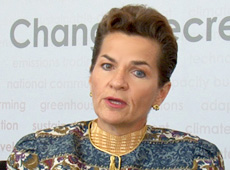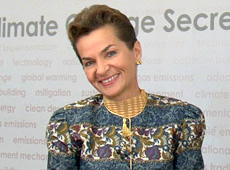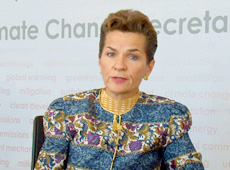Q. The UN-REDD Program, the United Nations collaborative initiative on Reducing Emissions from Deforestation and forest Degradation was launched in 2008. What is its purpose?

UN-REDD was created to coordinate the efforts of three UN-related agencies, the Food and Agriculture Organization of the United Nations (FAO), the United Nations Development Program (UNDP) and the United Nations Environment Program (UNEP), all of which had programs and interest in supporting the reduction of deforestation and degradation in specific countries. This is one way these three UN agencies are following the mandate that we all have from the Secretary General.
UN-REDD was also created as a very helpful vehicle to receive funds, such as the original contribution from the government of Norway, and to allocate them in an effective and programmatic way. Q. How are GEO programs such as the Global Carbon Observation and Analysis System and Forest Carbon Tracking useful to UN-REDD? Forest cover is one of the areas of absorption of CO2 that we have on the planet, and we need as much as information as we can get on the capacity of our forests to absorb carbon dioxide. That is information that the secretariat and delegates take into account when deciding on measures that would provide the policy framework for the management of forests around the world.
Q. Unfortunately, many countries are unlikely to achieve their reduction targets by 2012. How do you see the situation?

The fact is that industrialized countries, as a whole, will be able to meet their compounded target under the Kyoto Protocol by the end of 2012. As you know, that was an average of a 5.2% reduction from their 1990 levels. However, what is very evident now is that even when they do commit to the Kyoto Protocol target, that is vastly insufficient to contribute to any stabilization of the Earth’s atmospheric concentrations, which is what we need. Hence, it is very clear that as we move into the next chapter of the regime, industrialized countries need to commit to even deeper reductions. Q. What are your expectations for the Japanese government and JAXA? We are very grateful to the Japanese government and to JAXA for their participation in this very important initiative, which provides scientific background and information for policymakers to be able to make decisions. Our expectation and hope is that both the Japanese government and JAXA will continue their commitment and their support of this project, and continue to provide the UNFCCC process with this type of scientific information about global carbon circulation.
Christiana Figueres
Executive Secretary, United Nations Framework Convention on Climate Change (UNFCCC)
Ms. Figueres holds a Master’s Degree in Anthropology from the London School of Economics. She started her diplomatic career as a Ministerial Counselor at the Embassy of Costa Rica in Germany in 1982. She served as Director of International Cooperation in her country’s Ministry of Planning in 1987. Ms. Figueres has been involved in climate change negotiations since 1995. She was a member of the Costa Rican negotiating team and represented Latin America and the Caribbean on the Executive Board of the Clean Development Mechanism in 2007, before being elected Vice President of the Bureau of the Conference of the Parties 2008-2009. Ms. Figueres has served on several boards of non-governmental organizations involved in climate change issues. She became Executive Secretary of the United Nations Framework Convention on Climate Change (UNFCCC) in May 2010.
Researching the Carbon Dioxide Cycle
World’s First High-Resolution Global Forest/Non-Forest Map
Japan Contributes to Efforts to Solve Environmental Problems
Policymakers Worldwide Need Unified Carbon Cycle Data
Reliable Data Essential for Greenhouse Gas Reduction

